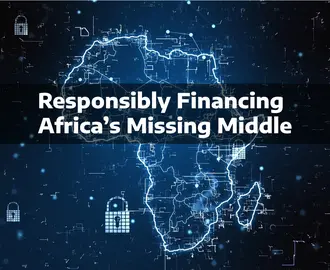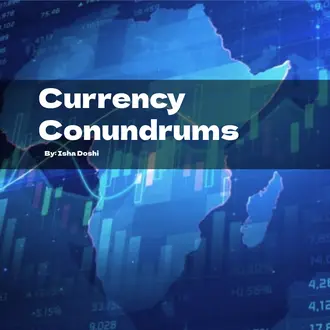From Sands to Skylines: Dubai's Rise as a Global Epicenter for Entrepreneurship
In recent decades, the global landscape has been fundamentally reshaped by digital transformation, a phenomenon that has redefined the way businesses operate and grow. Nations across the globe have been compelled to adapt to this new era, prioritizing innovation and technology to stay competitive. While many countries are still grappling with the complexities of the digital age, the United Arab Emirates (UAE) embraced this challenge head-on, demonstrating how strategic adaptation, coupled with visionary leadership, can position a nation at the forefront of this digital revolution. The World Bank's 2020 report, which ranked the country 16th globally for ease of doing business, is evidence of its successful adaptation strategy. This ranking reflects the changes in the nation's regulatory and business environments, making it an attractive destination for entrepreneurs and investors worldwide.
In the heart of the UAE, Dubai stands as a testament to the extraordinary power of transformation and vision. From its origins as a desert trading post, Dubai has evolved into a global powerhouse characterized by both its luxurious opulence and its dynamic role as a hub for entrepreneurship and innovation. Its strategic geographic position as a crossroads between Africa, the Middle East, and Asia greatly facilitates access to a vast range of markets, making it an ideal base for businesses aiming to expand their global footprint. This advantage, combined with Dubai's robust infrastructure, a wealth of amenities tailored for entrepreneurs, and a steadfast commitment to fostering a cosmopolitan culture that values diversity and inclusivity, further cements the city's status as a premier destination for business and innovation.
As we explore Dubai's progress, we will shine light on the strategic governmental initiatives that have shaped its entrepreneurial landscape, the advanced infrastructure that supports business growth and innovation, and the vibrant cultural diversity that fuels creative and collaborative business endeavors. Collectively, these elements have paved the way for Dubai’s ascent as a epicenter for entrepreneurship globally.
Government Initiatives That Paved the Way
Dubai's remarkable journey towards becoming a hub for global entrepreneurs is rooted in a series of strategic government initiatives and policies that reflect the UAE's broader ambition to cultivate a thriving digital and technological landscape. This commitment is exemplified by the formation of the Dubai Chamber of Digital Economy, a pivotal and visionary move by His Highness Sheikh Mohammed Bin Rashid Al Maktoum to bolster Dubai's role in shaping and leading the digital economy. This chamber operates under the broader umbrella of Dubai Chambers and is crucial in driving initiatives that attract digital companies and support the expansion of Fourth-Industrial-Revolution (4IR) technologies across business sectors.
The government's strategic focus on fostering innovation, technology, and digital transformation has laid a robust foundation for Dubai's entrepreneurial ecosystem to thrive. It’s aggressive push to foster technological growth is further highlighted by a variety of initiatives:
- The establishment of free zones like Dubai Internet City and Dubai Media City, which provide a conducive environment for tech startups and international enterprises. These zones offer a blend of tailored infrastructure and flexible regulatory frameworks, serving as a magnet for businesses across diverse sectors. Dubai Internet City alone houses over 1,600 companies, including global tech giants and promising startups.
- The appointment of a Minister of Artificial Intelligence in 2016, which makes the UAE the first country globally to create such a role and demonstrates its foresight in embracing emerging technologies. This move forecasts AI boosting the nation’s GDP by up to 35% and reducing government costs by 50%. Dubai's implementation of AI across government services, which are now 90% digitized, speaks to its commitment to becoming the “world's happiest city” through seamless and efficient citizen services.
- The establishment of the Virtual Assets Regulatory Authority (VARA) in 2022, which marks Dubai's ambition to become a global hub for cryptocurrency and digital assets. This initiative, coupled with the launch of the Digital Assets Business Group by the Dubai Chamber of Digital Economy, underscores Dubai's strategic approach to fostering a 'light touch' regulatory environment that is attractive to major crypto players like Binance, Crypto.com, and Bybit.
- The Launch of the Dubai Future District Fund (DF2), which was established to strengthen the venture ecosystem and support innovative technology startups through capital. Founded by shareholders including the Dubai International Financial Center and the Dubai Future Foundation, the fund is pivotal in enhancing venture capital availability through investments in local, regional, and international venture capital funds, as well as direct investments in startups. With a focus on two thematic pillars – the Future of Finance and Future Economies – DF2 is positioned to play a significant role in Dubai's entrepreneurial landscape and exemplifies the UAE's commitment to fostering a thriving digital and technological landscape.
- Innovative visa policies, such as the Golden and Green visa schemes, which showcase the UAE’s dedication to attracting and retaining global talent, have been pivotal in making Dubai an accessible and inclusive business hub, giving it an edge over traditional tech hotspots like Silicon Valley and Delaware. The Golden Visa, for instance, offers long-term residency to entrepreneurs and investors, fostering a sense of stability and commitment among the international business community.
- Smart Dubai Initiative, a visionary initiative launched following Dubai’s transformation into a Smart City, revolves around four key pillars: Seamless, Efficient, Safe, and Personalized experiences, aiming to integrate daily life and business operations. It targets enhancing customer happiness by enhancing city services, streamlining processes, fostering innovation, and ensuring the resilience of resources and infrastructure. This includes pioneering innovative transport solutions, ensuring a clean environment through ICT innovations, and transforming government operations to be digital, lean, and connected. This holistic approach contributes significantly to creating a dynamic, efficient, and supportive environment, pivotal for nurturing Dubai's position as a leading global hub for entrepreneurship and innovation.
- The establishment of the Dubai Startup Hub, which has been instrumental in providing entrepreneurs with access to funding, mentorship, and networking opportunities. This initiative has supported over 5,000 startups, significantly contributing to Dubai's status as the startup capital of the UAE. In 2021, the UAE underscored its position as a magnet for venture capital, drawing nearly half of the $2.87 billion raised in the MENA region, predominantly in favor of Dubai-based startups. This influx of investment is part of a broader strategy by the Dubai Chamber of Digital Economy, aiming to foster 20 unicorn startups by 2031. Dubai's commitment to nurturing a digitally advanced and diverse economy is evident in its embrace of cutting-edge fields such as 5G, IoT, blockchain, digital assets, biotech, web3.0, and the metaverse. Moreover, the UAE's National Program for Small and Medium Enterprises and Projects (SMEs) underscores the government's commitment to nurturing the SME sector, which is integral to the nation's economic diversification plans.
- The Dubai Chambers’ Global Expansion Initiative, which complements Dubai's strategic role in the global business arena in supporting its members’ expansion into international markets. This initiative aligns with Dubai’s mission to elevate its foreign trade to AED 2 trillion by 2026, and is aimed at driving business growth in diverse global regions. The “In Focus'' platform, spearheaded by Dubai Chambers, serves as a comprehensive resource for local businesses, offering access to market intelligence, networking opportunities, and expert guidance on international expansion. This initiative specifically targets the dynamic needs of SMEs, family businesses, and multinational corporations within Dubai, facilitating connections with key stakeholders and paving the way for successful global ventures.
The success stories of Careem and Kitopi, both homegrown startups that achieved monumental success, further validate the city's nurturing entrepreneurial ecosystem but also highlight its strategic role as a launchpad for regional and international business expansion. Careem, which started as a local ride-hailing service, leveraged Dubai's strategic position to extend its operations across the Middle East and North Africa, eventually leading to its acquisition by Uber for $3.1 billion. Kitopi, starting as a cloud kitchen in Dubai, rapidly evolved into a unicorn after raising $800 million, expanding into eight countries across the Middle East and Europe, thanks to Dubai's ideal geographic position and its robust infrastructure that facilitates global connectivity. This infrastructure, a cornerstone of Dubai's appeal, is critical for businesses aiming to scale, offering them a gateway to a variety of markets in Europe, Africa, and South Asia. Dubai’s mix of strategic location, advanced infrastructural support and pro-business environment creates an unparalleled environment for startups and established businesses alike to amplify their growth and reach across multiple continents.
Infrastructure that Powers Business Growth
Dubai's state-of-the-art infrastructure extends beyond impressive skyscrapers and its exceptional connectivity of well-integrated networks has supported and accelerated business growth at every level.
At the forefront of Dubai's infrastructure revolution is its commitment to nurturing the tech and innovation sectors. The UAE's Information and Communications Technology (ICT) strategies, that focus on developing robust cloud infrastructure and data storage, have been instrumental in the nation’s digital transformation. Dubai Internet City has for over two decades been a competitive market hub for the ICT sector. The commitment to making Dubai the world’s smartest city is evident in its deployment of Internet of Things solutions to enhance public infrastructure.
The city's connectivity is another significant asset. Home to one of the world’s busiest international airports, Dubai provides unmatched access to global markets. This connectivity is bolstered by entities like Emirates Airlines and DP World. Emirates, with its extensive flight network, links Dubai to the world and with regional growth in the aviation sector set to see passenger numbers double by 2040, Dubai's position as a top aviation hub is only expected to strengthen.
Similarly, DP World’s logistics and cargo services ensure efficient global trade facilitation. This infrastructure’s impact is evident in the success stories of ventures like Souq.com, an e-commerce giant initially based in Dubai, which utilized this extensive network before its acquisition by Amazon for $580 million.
Furthermore, Dubai's partnership with Virgin Hyperloop One to develop the world’s fastest transit system exemplifies the city's ambition to revolutionize transportation.
Furthermore, Dubai's partnership with Virgin Hyperloop One to develop the world’s fastest transit system exemplifies the city's ambition to revolutionize transportation. This collaboration, part of DP World's Cargospeed project, is set to transform Dubai into a logistics powerhouse, delivering freight at unprecedented speeds and comparable costs to trucking.
In essence, Dubai's infrastructure – from its digital hubs to its state-of-the-art transportation systems – is not just about physical assets. It represents a strategic investment in the future, positioning the city as an epicenter of entrepreneurial activity and global commerce. This infrastructure, coupled with the city’s strategic geographical location, ensures that Dubai becomes a gateway to the Middle East as well as a bridge connecting diverse global markets.
Cultural Diversity: A Catalyst for Entrepreneurial Innovation
Dubai’s emergence as a global hub for entrepreneurship is deeply rooted in its rich cultural diversity. Home to over 200 nationalities, the city thrives as a melting pot of diverse cultures, ideologies, and business acumen. This unique blend of global perspectives fosters an environment where innovative problem-solving and creative business ideas are the norms, not exceptions. This convergence of cultures and ideas not only enriches Dubai’s entrepreneurial ecosystem but also reflects the global nature of the challenges and opportunities entrepreneurs seek to address. Its position as the digital startup hub in the MENA region is further solidified by its appeal to a range of businesses, from established tech giants like Google, Meta, Apple, and Amazon to emerging unicorns such as Binance, Stripe, and TikTok or emerging startups from the Middle East, Africa, South Asia (MEASA) region.
Recognizing these strategic advantages, African entrepreneurs are increasingly choosing the city as their launchpad for global expansion. One notable example is Swvl, a Cairo-based transportation startup. Swvl, which connects commuters with private buses through a mobile app, has successfully expanded its operations beyond Egypt. After its establishment in 2017, the company quickly grew, raising significant funding and expanding to cities like Alexandria, Nairobi, and Lahore. Swvl’s decision to move its headquarters to Dubai in 2019 underscores the city’s role as a hub for expanding into new international markets, particularly in the Middle East, Africa, and Asia.
Middle Eastern companies also find a welcoming and growth-conducive environment in Dubai. A testament to this is FinX, a fintech startup originally based in Jordan. Capitalizing on Dubai’s cutting-edge digital infrastructure and favorable business regulations, FinX has grown exponentially, now serving as a key player in the MENA region's financial technology sector.
From Southeast Asia, StashAway, a digital wealth management firm founded in Singapore in 2017, has also chosen Dubai for its regional expansion. In 2020, StashAway launched in the Dubai International Financial Center (DIFC) after securing an asset management license from the Dubai Financial Services Authority (DFSA) with retail endorsement. This move signifies the strategic role of Dubai as a gateway for Asian startups looking to access the lucrative markets of the MENA region.
Additionally, Dubai’s reputation for its safety, high quality of life, and strategic location has made it an increasingly attractive destination for family offices and global investment funds. The city's growing financial wealth, advantageous tax policies, and strategic positioning between Europe, Asia, and Africa have drawn significant investments. The relaxation of business ownership rules and enhanced residency options have particularly drawn family offices, contributing to the influx of 4,500 millionaires expected in 2023 alone. Regulatory reforms in the Dubai International Financial Centre (DIFC), offering operational ease and privacy for family offices, further enhance Dubai's position as a prime destination for wealth management. With over 71% of the UAE's family offices based in Dubai, managing hefty portfolios often exceeding $250 million, and a growing number of billionaires choosing Dubai for its business-friendly environment, the city is transforming into a global financial hub. The increasing presence of family offices, including prominent ones like Al Qassimi Family Office, Landmark Group, Majid Al Futtaim Family Office and Easa Saleh Al Gurg Group, underscores Dubai's capacity to offer lucrative opportunities and a sophisticated operational infrastructure for managing vast wealth.
While Dubai presents numerous opportunities, it also poses unique challenges, particularly in terms of navigating the local business landscape, cultural adaptation, and understanding diverse market needs. Entrepreneurs often face obstacles in understanding local consumer behavior, legal and regulatory requirements, and competition in a rapidly evolving market. Navigating these complexities requires a nuanced approach and often, local partnerships or guidance. Despite these challenges, Dubai's inherent openness and adaptability have enabled entrepreneurs to successfully navigate these hurdles. Wego, a traveltech startup from Singapore, chose Dubai as its second headquarter to leverage the UAE’s regional position as well as its investor base, leading to substantial growth and regional recognition.
As such, Dubai’s status as a global hub for entrepreneurship is underpinned by its ability to attract and nurture talent and ideas from across the globe. It offers a unique blend of opportunities and challenges, making it a fertile ground for businesses from different regions to innovate, grow, and thrive.
Conclusion
Dubai's ascent as a global hub for entrepreneurs encapsulates more than just an openness to change; it unfolds as a narrative woven with threads of innovation, ambition, and resilience. The success stories of enterprises from Africa, the Middle East, and Southeast Asia, converging in Dubai, vividly illustrate the transformative impact of a city transcending geographical boundaries to become a melting pot of global entrepreneurship.
At the heart of this success lies Dubai's strategic governmental initiatives, epitomized by the Dubai Chamber of Digital Economy, which have played an instrumental role in shaping its current status. The city's unwavering commitment to fostering innovation, coupled with a pro-business regulatory environment, has cultivated an ecosystem where entrepreneurs not only survive but thrive.
Reflecting on the journeys of enterprises that have flourished in Dubai reveals that its enabling environment extends beyond mere physical infrastructure. Dubai's dedication to embracing Fourth-Industrial-Revolution (4IR) technologies has crafted an ecosystem that not only supports businesses but propels them onto the global stage. The interconnectedness of challenges, opportunities, and Dubai's nurturing environment has laid the groundwork for a new era of global entrepreneurial excellence.
Peering into the future, Dubai's trajectory stands as an inspiration for other cities and nations looking to cultivate similar entrepreneurial ecosystems. Its success in attracting and nurturing businesses from diverse cultures and regions underscores the efficacy of strategic planning, innovation adoption, and the creation of an environment conducive to entrepreneurial endeavors. Dubai's narrative not only shapes its own destiny but also stands as a paradigm for global entrepreneurial success, extending an invitation to ambitious entrepreneurs to become part of its dynamic and flourishing business landscape. As the city continues its evolution, it not only shapes its destiny but also stands as a guiding light for the future of entrepreneurial success worldwide.
References:
- Careem's Acquisition by Uber - Bloomberg
- Souq.com's Acquisition by Amazon - TechCrunch
- Majid Al Futtaim’s Quote - McKinsey
- Dubai International Airport and DP World Information - DP World
- Dubai Internet City: About Dubai Internet City
- Dubai Chamber of Digital Economy: Dubai Chamber
- World Bank - Ease of Doing Business Report 2020: World Bank Group
- Dubai Chamber of Digital Economy Strategy: Dubai Digital Economy Report
- MENA Region Venture Investment Report: MAGNiTT
- DP World and Virgin Hyperloop One Partnership: DP World Cargospeed
- Dubai the Next Silicon Valley - Economy Middle East
- Air Passenger Numbers in Middle East - Civil Aviation Authority
- Global Talent Competitiveness Index - INSEAD
- Smart Dubai Initative - U.AE Strategies
- The New Hub For Single Family Offices Is UAE - Altoo
- Dubai Chamber’s New Growth Initiative - Dubai Chamber
Related Posts



